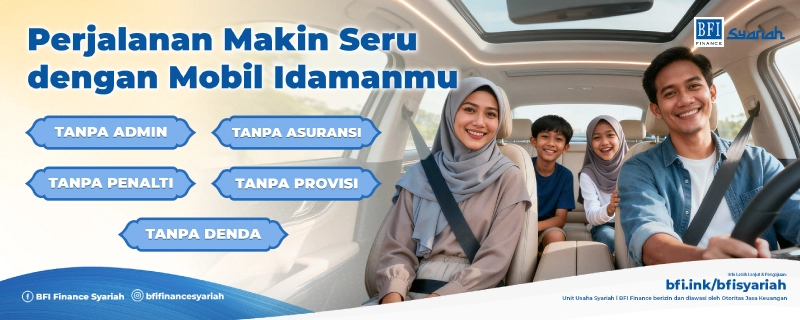Entering the world of college or work often means leaving home and moving into a boarding house. Whether due to distance or other reasons, the experience of living in a boarding house is unique. Being a boarder means you have to live independently, without the support of others. Therefore, it's important for boarders to be skilled at managing their finances. Here's a series of tips for managing expenses as a boarder.
1. Tips for Managing Expenses as a Boarder
1.1 Pay Bills on Time
There are monthly expenses you must pay, such as rent, electricity, internet, and other bills. Make sure to pay these bills on time to avoid penalties or bigger problems.
1.2 Limit Hangouts
While living in a boarding house, you're likely to be tempted to socialize with friends who also board there. It's enjoyable to spend time with friends, but too much socializing can add unnecessary financial burden. Although socializing is essential, it's wise to set limits to avoid unexpected expenses associated with hanging out too often.
1.3 Save at the Beginning of the Month
Set aside a portion of your money at the beginning of the month to save. Saving can come in handy during unforeseen situations and can ease your financial burden in the future.
Also Read: 12 Ways to Save Quickly and Precisely, Soon-to-be Rich!
1.4 Smart Shopping
In addition to having enough kitchenware, it's also important to be savvy about where you shop. Look for stores or markets that offer reasonable prices and discounts. Try to buy items in bulk if possible, as this can save you money in the long run. Also, don't hesitate to compare prices at several places before making a purchase.
1.5 Economical Eating at Home
One of the best ways to save money when living on your own in a boarding house is to cook your meals. Dining out or ordering takeout can be a significant expense if done too frequently. Try learning how to cook some simple dishes so you can prepare your meals and save money.
Also Read: Tips for Saving on Monthly Shopping, Making the End of Your Month Happy
1.6 Menu Planning
In addition to cooking for yourself, menu planning can help you manage your food expenses more efficiently. Create a grocery list and a weekly menu so you know exactly what you need to buy and cook. With menu planning, you can avoid impulsive purchases and ensure that you only buy the food you need.
1.7 Energy and Water Savings
Besides food expenses, you should also pay attention to electricity and water bills. Save energy by turning off electronic devices when not in use and switching off lights when leaving a room. Also, be mindful of water usage. Turn off the tap when not in use, and make sure there are no leaks that could lead to water wastage.
1.8 Bring Items from Home
There are some essential items you'll need while living in a boarding house. Many of these items can be brought from home so that you don't have to spend money on them.
2. Essential Items for Boarders
2.1 Rice Cooker
A rice cooker is a helpful appliance for quickly and consistently preparing rice in the life of a boarder. It's recommended to choose a mini-sized rice cooker to minimize electricity consumption, and you can cook the right amount of rice you need.
2.2 Iron
To keep your clothes looking neat and appealing, an iron is an essential tool for clothing maintenance in the boarder's routine.
2.3 Power Strip
Make sure you have enough power strips to charge your electronic devices and emergency lights to deal with unexpected power outages.
2.4 Hangers
The use of hangers is a basic need for boarders to hang their clothes and keep them tidy and organized.
Also Read: Discover the Effects of Applying Positive Thinking in Life
2.5 Bath Essentials
Boarders need bath essentials, including towels, soap, shampoo, toothbrush, toothpaste, comb, and other bath items. Maintain cleanliness and personal hygiene with complete bath essentials.
2.6 Tableware
In everyday life, food and beverages are basic necessities. However, when you live on your own in a boarding house, you need to ensure you have enough tableware to cook and eat comfortably without having to eat out too often. Here are some tableware and kitchen items that borders should have:
- Plates and Glasses
Make sure you have at least a few plates and glasses. These are essential for your everyday meals. You don't need fancy plates and glasses; simple ones will suffice.
- Spoons, Forks, and Knives
You'll also need spoons, forks, and knives to comfortably enjoy your meals. You can purchase a utensil set consisting of spoons, forks, and knives at kitchen supply stores.
- Pots and Pans
To prepare meals, you'll need pots and pans. Make sure you have at least one large pot and one large pan for cooking your food.
- Basic Cooking Tools
In addition to pots and pans, you'll also need basic cooking tools like a spatula, a ladle, and a kitchen spoon. These tools will make it easier for you to cook various types of dishes.
- Electric Kettle or Teapot
If you enjoy hot beverages such as tea or coffee, having an electric kettle or teapot can be very useful. It allows you to quickly boil water for your beverages without needing a stove.
- Food Storage Containers
It's also important to have food storage containers such as Tupperware or jars. These will help you store leftover food properly and prevent it from going bad.
- Microwave
While not mandatory, having a microwave can make it convenient for heating food or quickly preparing instant meals.
- Tea/Coffee Cups and Spoons
If you like to drink tea or coffee, having cups and tea/coffee spoons will be useful. You can also have straws if you prefer using them for drinking.
- Can and Bottle Openers
Can and bottle openers are useful tools if you consume food or beverages that come in cans or bottles.
- Measuring Glass
A measuring glass will be useful if you frequently cook and need accurate measurements for cooking ingredients.
- Strainer
If you enjoy cooking pasta or vegetables that need to be strained, having a strainer will be very helpful.
- Cleaning Tools
Finally, don't forget to have cleaning tools such as sponges, dish brushes, detergent, and towels to keep your dining and drinking utensils clean.
Furthermore, it's important to continually evaluate and revise your budget. Regularly review your expenses and identify areas where you can make adjustments. There may be some expenses that can be reduced or eliminated. By consistently monitoring and updating your budget, you can effectively manage your finances.
When it comes to budgeting as a tenant, awareness and discipline in managing money are crucial. By following the above tips and adopting a frugal lifestyle, you can avoid unnecessary expenses and ensure that your money is spent wisely. So, enjoy your experience as a tenant responsibly and wisely manage your finances.
BFI Finance is a company that provides multi-purpose loans with guarantees for motorbike bpkb, car bpkb, and house or shophouse certificates







